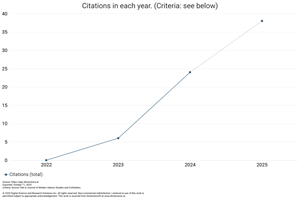Religious Tolerance Base on Local Wisdom in Indonesia
DOI:
https://doi.org/10.59653/jmisc.v1i01.2Keywords:
Religious Diversity, Tolerance, Local WisdomAbstract
Tolerance is an effort made by religious people to respect and respect each other's beliefs. The people of Lombok with a multicultural religion prioritize the principle of tolerance through existing local wisdom. The approach used in this research is a qualitative approach with descriptive analysis method. The results of this study reveal that local-based tolerance is practiced by religious communities in Lombok as shown in community religious activities that involve adherents of other religions to participate in their religious practices. Such as Christmas, 'Eid al-Fitr, Vesak celebrations, and other religious practices. Lombok's Muslim community does not hesitate to invite non-Muslim neighbors to join in enlivening the halal bi halal event, the Prophet's birthday and other celebrations, Hindus also invite their neighbors to join in enlivening the ogoh-ogoh event which is their routine religious event, Christians also share and invited his neighbors to join in celebrating their Christmas event. So that tolerance in the local wisdom of the Lombok people is based on three aspects, namely Solidarity, mutual cooperation, and deliberation. These three things are the local culture of the community which has been practiced for generations, in order to achieve a harmonious and orderly life.
Downloads
References
de Lange, D. E., Armanios, D., Delgado-Ceballos, J., & Sandhu, S. (2016). From Foe to Friend: Complex Mutual Adaptation of Multinational Corporations and Nongovernmental Organizations. Business and Society, 55(8). https://doi.org/10.1177/0007650314568537
Ida, R., Gunawan, E., Widiyantoro, S., Sunarti, E., Marliyani, G. I., & Maulidiyah, L. (2022). Social networks and local communication network patterns following the destructive 2018 Lombok, Indonesia, earthquake sequence. Geomatics, Natural Hazards and Risk, 13(1), 451–473. https://doi.org/10.1080/19475705.2022.2033854
Learson, E. M. (2019). Civic and Religious Education in Manado, Indonesia: Ethical Deliberation About Plural Coexistence. Sustainability (Switzerland), 11(1).
Religion from Sociological Perspectives: An Overview. (2022). Asian Journal of Social Sciences and Legal Studies. https://doi.org/10.34104/ajssls.022.024031
Rosadi, S. (2019). EXTINGUISHING FIRE, IGNITING TOLERANCE: FIRE FIGHTER COMMUNITY, CIVIL CULTURE AND TOLERANCE. Khazanah: Jurnal Studi Islam Dan Humaniora, 17(1). https://doi.org/10.18592/khazanah.v17i1.3022
Sadat, A., & Andika, R. (2022). BUREAUCRACY CAPACITY OF LOCAL GOVERNMENTS FOR THE IMPLEMENTATION OF PUBLIC SERVICES: A LITERATURE STUDY. Jurnal Studi Ilmu Pemerintahan, 3(1). https://doi.org/10.35326/jsip.v3i1.1992
Savenije, G. M., Wansink, B. G. J., & Logtenberg, A. (2022). Dutch history teachers’ perceptions of teaching the topic of Islam while balancing distance and proximity. Teaching and Teacher Education, 112. https://doi.org/10.1016/j.tate.2022.103654
Subchi, I., Jahar, A. S., Rahiem, M. D. H., & Sholeh, A. N. (2022). Negotiating Religiosity in a Secular Society: A Study of Indonesian Muslim Female Migrant Workers in Hong Kong. Journal of Population and Social Studies, 30. https://doi.org/10.25133/JPSSv302022.010
Suprapto, N., Prahani, B. K., & Cheng, T. H. (2021). Indonesian curriculum reform in policy and local wisdom: Perspectives from science education. Jurnal Pendidikan IPA Indonesia, 10(1), 69–80. https://doi.org/10.15294/jpii.v10i1.28438
Widia Laksmi, I. A. N. (2021). The The Perception Of Hindu Community In Mataram Toward Changing On Customary Marriage Behavior. Kamaya: Jurnal Ilmu Agama, 4(3). https://doi.org/10.37329/kamaya.v4i3.1319
Wijana, I. N., Listiawati, N. P., & Ekaningtyas, N. L. D. (2022). Non-Formal Education Model in Building Student Character in Mataram West Nusa Tenggara Indonesia. Eduvest - Journal Of Universal Studies, 2(2). https://doi.org/10.36418/edv.v2i2.353
Wirawan, I. W. A., & Widana, I. N. M. (2020). Construction of a multicultural civilization in memarek tradition. International Journal of Innovation, Creativity and Change, 4, 126–144.
Downloads
Published
How to Cite
Issue
Section
License
Copyright (c) 2023 Ahmad Dhani

This work is licensed under a Creative Commons Attribution-ShareAlike 4.0 International License.
Authors who publish with this journal agree to the following terms:
- Authors retain copyright and grant the journal right of first publication with the work simultaneously licensed under a Creative Commons Attribution-ShareAlike that allows others to share the work with an acknowledgement of the work's authorship and initial publication in this journal.
- Authors are able to enter into separate, additional contractual arrangements for the non-exclusive distribution of the journal's published version of the work (e.g., post it to an institutional repository or publish it in a book), with an acknowledgement of its initial publication in this journal.
- Authors are permitted and encouraged to post their work online (e.g., in institutional repositories or on their website) prior to and during the submission process, as it can lead to productive exchanges, as well as earlier and greater citation of published work (See The Effect of Open Access).
























